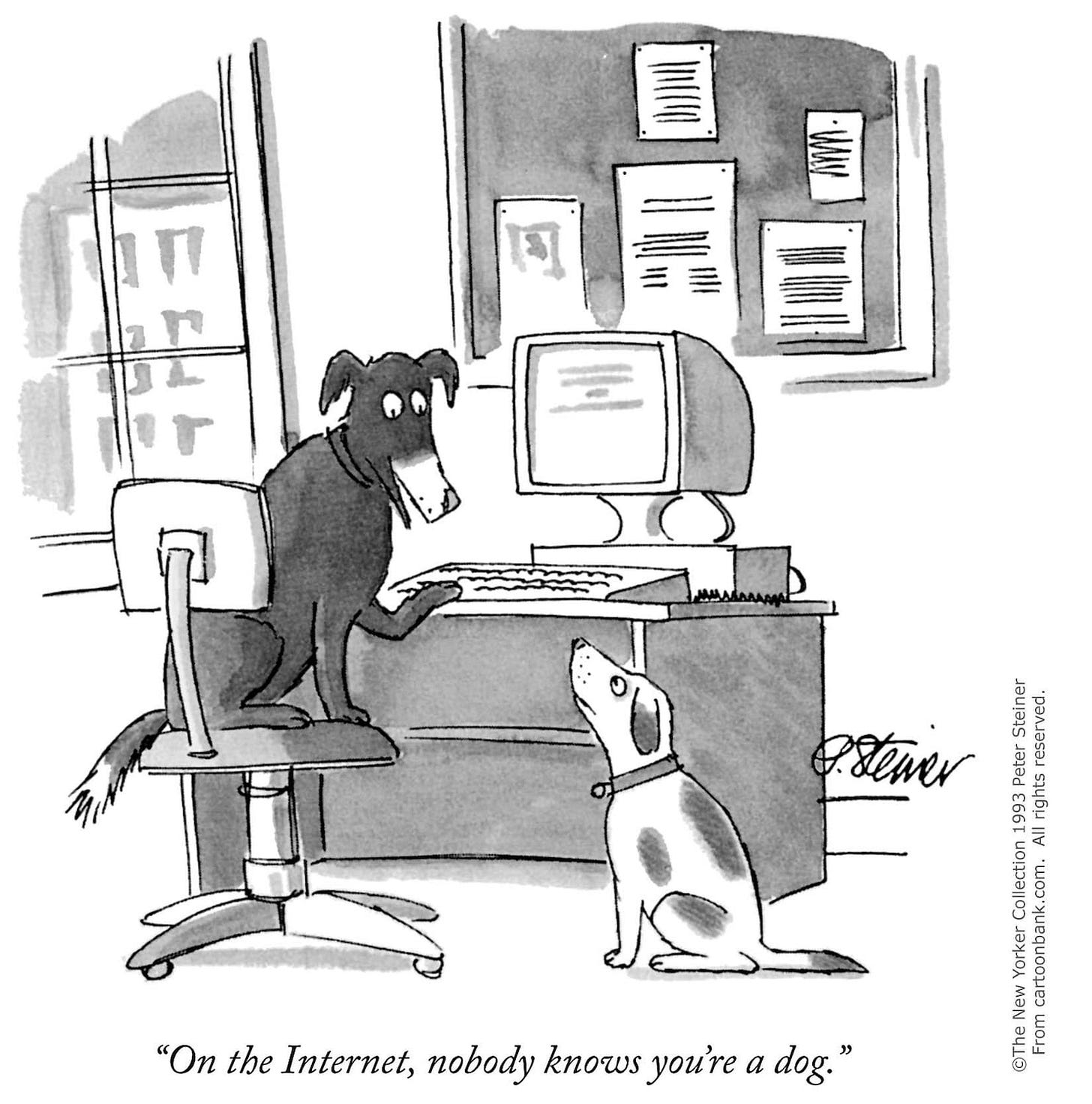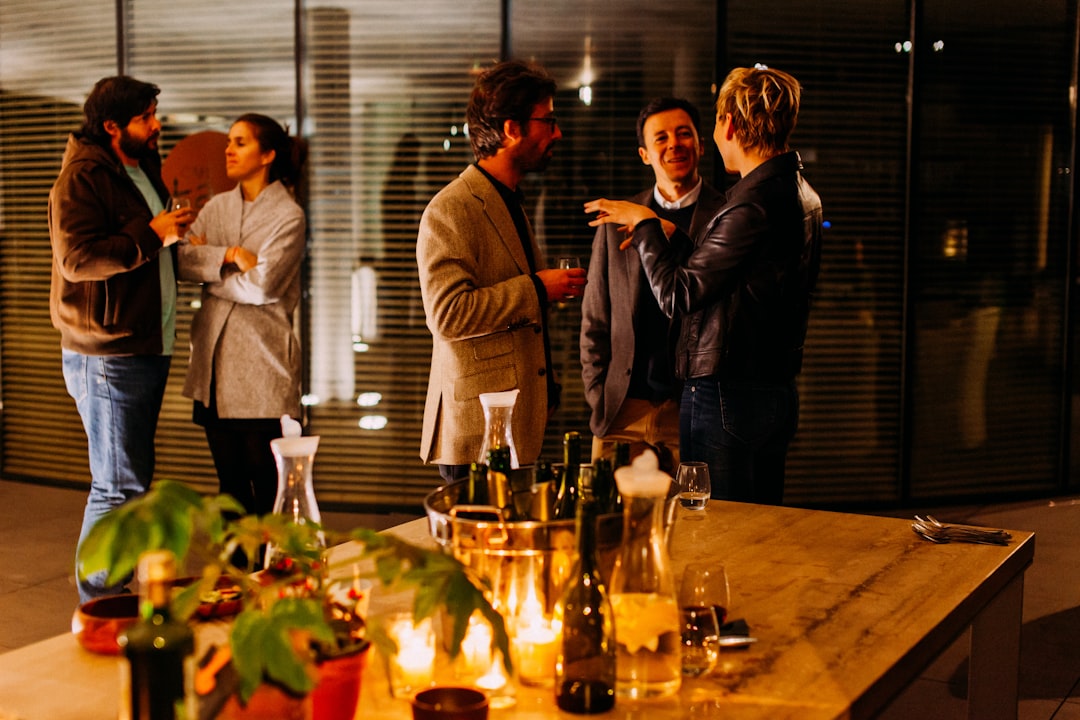Identity, impact - and some new music
A better question and EBTG drops a new album after 24 years
Welcome to this week's issue. I'm glad you're here.
You know the question. As adults, we just can’t seem to escape it — even when we’re far from the workplace. It’s so automatic. It’s right there, usually the first or second thing that’s said.
What do you do?
There is so much wrapped up in that question and it may be different for each of us. Status. Insecurity. Comfort. Embarrassment. Context. Curiosity. Judgement. Perhaps it’s time to reconsider this standard opening line.
Last week, I read an article in the WSJ. The headline in print was “Move Past the Work Question.” Online, it became “Stop Telling Everyone What You Do for a Living” (gift link). The subhead suggests:
Handle the ‘What do you do?’ question with aplomb, and make more space for the rest of your life
It’s relatively short and worth a read. The article profiles a variety of people and their approaches and experiences.
We meet someone who hosts a dinner series where guests aren’t allowed to reveal what they do for 90 minutes.
At first, “it’s cringey.” … Upon arrival, some jittery diners avoid the wine and lapse into banal conversations about, say, the spelling of their names.
But by the end, the group is like a gang of old camp friends, he said, bonded by the shared vulnerability of completing a task together—they prepare dinner—and the fact that they can’t devolve into the rote what-do-you-do scripts they have been honing for years.
Strategies
Here are three approaches to consider embracing from the article:
Self-deprecation
Out in the wild, Mr. Levy likes to answer the inevitable “What do you do?” question with a self-deprecating line or a joke, say, answering that his vocation is making little umbrellas in tropical drinks🍹. The moment breaks the routine of conventional chatter, disarming people and opening them up.
Hobbies and family
When making introductions, Ms. Dary recommends people lead with hobbies🏓 and family 👪, adding work as a last, passing thought. You can say, “In my day job, I…” or “The way I pay my bills is…”
Field
Since being fired suddenly a decade ago, Ed Baldwin has shifted to introducing himself by his field, human resources, and leaving out his title and firm name.
Go deeper:
7 Better Ways to Answer “What Do You Do?” (The Muse)
How to Answer “What Do You Do?” (And What to Ask Instead) (Science of People)
A better question?
Perhaps a better question for us to ask is this:
What brings you joy?
I started asking this question some years ago and have found it often yields a very different conversation. If you haven’t tried it before, I would encourage you to add it to your repertoire and see what happens.
You just might end up learning about someone’s passion for perfecting the perfect scone or how they go walking with their neighbors three mornings a week or that they’ve starting taking piano lessons again as an adult. Who knows what you might learn. But chances are it will be more honest and interesting.
I had to actually start living a life outside of work to have something to talk about.
-Kate Bernyk
Identity and impact
Yesterday, I saw this post from Adam Grant on Instagram:
It got me thinking.
The WSJ article also profiled Ashley J. Hobbs, who once had a guy at a party walk away from her after she told him her job.
She vowed never to be like that, linking someone’s worth to their title.
And yet, in the past few years, she noticed her activity on social media had been overtaken by talk of her work, now as a podcast producer🎙. She was constantly touting the latest episode of her show or posting a video of herself unboxing awards. Gone were the funny videos of her grandma.
“There was no more of my life,” says the 37-year-old, who lives in Rahway, N.J.
She deleted her main Twitter account, where she had amassed some 5,000 followers, and removed mentions of her career from all her profile bios, except LinkedIn. It feels freeing to not have to be Ashley the Podcast Producer at every moment, online and in real life, she says.
I’ve been thinking about social profiles recently. When I first created my Substack account, I did so via Twitter and so it automatically imported my Twitter bio, just as Medium had years before. I now find myself wondering if it is the “right” bio for Substack. And, if not, how I might edit it? As I’ve looked at others’ bios on Substack, I’ve noticed a range from professional (establishing credibility and association with media or brand X) to personal, cryptic or anonymous. Identity is such an interesting thing on the internet.

The larger point:
Your impact in the world doesn’t depend on how you make a living. It derives from how you live your values.
-Adam Grant
This is a good reminder and a good segue to this week’s media embed.
Everything But The Girl dropped a new album this week. It’s their first new album in 24 years. The backstory is worth reading in this interview. I’ve been listening to the album as I’ve been writing this (3x so far). I like it. If you liked Amplified Heart and Walking Wounded, you should give it a listen this weekend. If you do, would love to hear what you think of it.
Reviews:
That’s it. Have a great weekend, everyone!
-Bryce




Ah man I love this topic. I've started asking people what they're interested in instead of what they do. Way more interested in passion over how people make money (unless you've stuck gold and you're passionate about what you do for a living!)
Liked that no one knows your a dog on the internet cartoon.